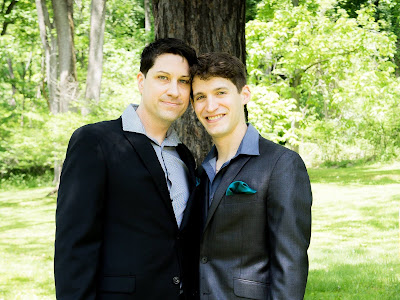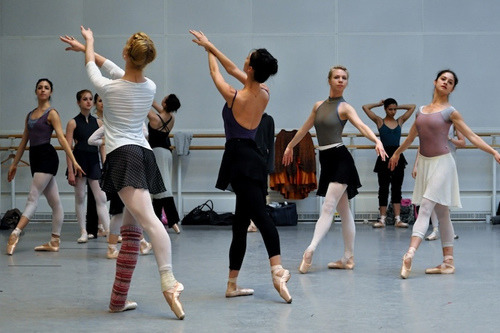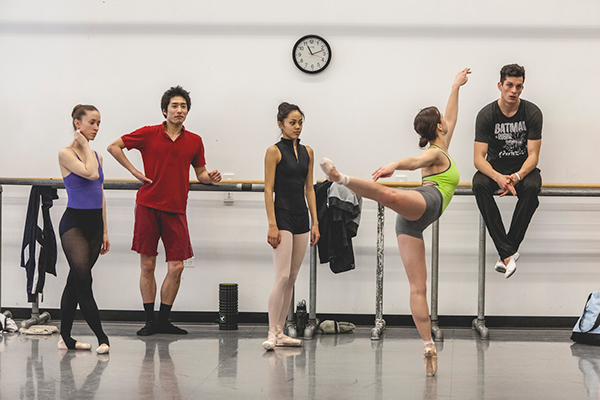 |
| Will this be me during my honeymoon in Buenos Aires? (Photo: Say Hueque blog) |
I can't believe that this is even about to happen. But I am heading to
South America on my honeymoon and I am taking my first major break from
all of my teaching, choreography, and media work for the first time in 4
years. So, while I'm sauntering around the arid coast of the Pacific in
Lima, Peru, absorbing the breathtaking summit above the Incan ruins of
Machu Picchu, watching the sunset over the Andes from my 17th floor
apartment in Santiago, and breathing in the
Paris of the South culture
of Buenos Aires, I will be taking a much needed (and hopefully
well-deserved) 3 weeks off from blogging. I hope you don't fret too
much, but if you are really hankering for some fresh new content, I have
pre-recorded 3 quick concept podcasts, the Flashcast, to release every
Friday that I'm away on my
Pas de Chát: Talking Dance podcast. You can also catch up on the plethora of old
Life of a Freelance Dancer posts by clicking on
this link here. (And if you want to feel like a part of the celebration for our honeymoon, you can see my choreography/poem I performed for my husband at our wedding, you can watch the video
via this link here)
Now,
moving on to what you are all here for... some fresh content! I'm
inspired to share information with you today from a recent experience I
had. Now, I must forewarn you all. While I am ecstatic to share myself
as a public persona that is both approachable and candid, at any point
anybody I know/meet or any experience I have may become a topic of conversation
within my media work. I don't do this for a laugh or to shame anybody. I take my work in sharing information and learning through each other's experiences very seriously.
But I think that we can all learn strong lessons from one anothers
missteps, failures, and successes. So, with that disclaimer out there,
let's move forward with this post's topic.
 |
| Performing in "The Nutcracker" (Photo: Glenn Mata) |
I recently
received a Facebook message from a contact that shared mutual friends
with me, but with whom I had no previous connection. I didn't know this
person, but they had talked to a friend of mine who suggested she get in
touch with me about freelancing. I have felt quite honored that people
feel comfortable/trust me enough to contact me on the regular seeking
advice on how best to go about freelancing (among many other requests
that range from questions about careers to promotion). But this occasion was one of
the first times that a message turned me a bit off. And, while my
immediate reaction was to ignore this message and move on with my busy
life, I chose to give it a day or two to settle before I made the decision to let the message sink deep into my inbox or to respond. I
did this because I have actually committed this
Internet Age misstep
before and I wanted there to be value in my response without coming off
as arrogant or offended.
What happened was this freelance artist
sent me a private message stating that they knew somebody I knew. Then
without providing much additional information, requested I put them in
touch with my contacts to give them freelance work. What threw me off
here was the appearance of expectation that I would just offer up
opportunities to any person that reaches out to me and requests them.
When I first read this message, I thought to myself, " Who does this
person think they are? And who do they think that I am?" But once my
initial reactions began to fade, I recognized that this
amateur (and sometimes professional) error was one I had committed
before and was more revealing of this dancer's experience and
understanding of how the dance world functions than anything else.
Let's
get one thing straight. There is no magical, easy way that a dancer
gets work; whether they are seeking company or freelance positions. I don't
have dozens of people asking me on the regular to find artists for them.
In fact, my freelance career has been full of quick bursts of fantastic
feasts and sometimes long, desperately desperate famine periods. The
success that I have obtained in both my dancing and
choreographic/teaching career have been the result of insurmountably
relentless hard work, trial-and-error, and unassuming vulnerability.
Looking at this dancer's daring ask, I recognized she had tapped into
her vulnerability by reaching out to a stranger who had figured out
their own path to success in her field of interest. But, perhaps, her
error lay in zeal. Instead of taking some time to develop a carefully
curated approach, she asked to ride on the coat tails of my perceived success. Yet,
even if I had work to offer, I already knew that she was unlikely to be
in a place to best represent me as an example of my taste and
consideration for excellence. It is important to remember that any referral almost equally reflects back on the person who suggested a dancer for work.
Before I even perused this dancer's
Facebook account, I was already questioning whether she was working at a
high enough level to perform some of the work that she had requested. Let
me preface this with a disclaimer that I still don't know the true
quality of this dancer, therefore I can't judge them. And if I did, I
would not share that information publicly. But alarm bells rang the
moment I finished reading the Facebook message I received because the
request was missing important pieces of information, had one glaring
statement, and read overall as an assumption that I already wanted to
help. The missing information was a clear error, as there was no professional
background or history given by this dancer whatsoever. No statement of past experience, no
images or reel to validate quality, and no resumé or CV to inform me that
"I am a highly-qualified candidate for work." The glaring statement that
jumped out to me let me know that they were mostly looking to perform
starring roles in works, but would be willing to step into lesser roles if they weren't available.
And the final deal-sealer was the request I already spoke about to be
put in contact with "my people" (which, unfortunately don't really exist).
By the time I reluctantly sauntered over to her profile to perform a
quality assurance search on photos, I already knew that if I could have
helped that I would probably have passed up.
 |
| Me and "My People" (Photo: Danya) |
Why am I sharing this
story? I honestly fear that it may come off as mean-spirited, but that is
not my true intention. And I can best prove this point by telling you
about the time that I did this. When I was a kid at the young age of 19,
I was hired by Roy Kaiser to dance with
Pennsylvania Ballet 2 (PB2),
the studio company to the main company. After accepting this position,
but not having signed a contract, I received a better offer in the form
of a company position as an Apprentice with
Houston Ballet. I called up
PB2 and gave them the bad news that I would not be signing the contract
heading to me in the mail. A year later, they were gracious enough to
let me audition for the company again. Though this time, my efforts
didn't end with a job offer. After joining
Pacific Northwest Ballet and
feeling like I needed a place where I could progress faster, I reached
out to
PA Ballet again. Though, this time I was given some bad advice
and made the poor choice to follow it. My young, overly ambitious Corps de Ballet
self said something along the lines of this. "Dear Roy, I am contacting
you to express my interest in joining Pennsylvania Ballet as a Soloist.
My technique has grown tremendously over the past few years at PNB.
Additionally, having come from the suburbs of Philadelphia, I feel that I
could be a great box office draw and help bring in a wider range of
audience members from the suburbs." There was more to it, but that is
the gist of my note. There it is, perhaps, my most embarrassing
correspondence ever!
So, I hope you can see how all of this
relates. What I did there was I tried to show confidence and get the
recipient on board with what I felt I had to offer. But it instead
showed a lack of grace, humility, and general understanding about the
way that things work in our field. This was the same mistake that this
hopeful freelancer made when reaching out to me. By reaching out to me
in the way she did, I already didn't trust her as a person and wrote her
off as unqualified or having an over-inflated sense of worth as a dancer. This was
almost to the point where I considered ignoring the message.
Now,
let's move forward with this. What can we learn from these stories? In
the event that you want to reach out to somebody to ask them for work
(whether dancing, teaching, choreographing, or beyond - both in and out of the
dance world), I always suggest that you introduce yourself quickly on a
personal level and more in depth on a professional level. Don't wait for
the recipient to request information to back up your requests for work
or networking (like a website, CV/résumé, photos, reel, etc.). Do be sure to
clearly express what you hope to get out of the contact while keeping
your word count to a minimum. Be wary of making assumptions that this
person already wants to help you. I always say the best way to go about
this is to ask for assistance in reaching your intention or for information about how to go about
getting what you are looking for, instead of going straight for the
punch and asking for work. Sometimes, this is unavoidable, but try to be
direct without being demanding. Beyond this (and this doesn't apply for
me because I do suggest the public reach me
via my website contact page for anything from work to personal questions or
via Facebook message for personal questions), if at all possible, try and contact people via a
professional email address. Most people prefer to keep Facebook
personal. Requesting work or help with getting work is not a personal request
and can really turn somebody off if they don't know who you are.
It
can be challenging to determine the best, most streamlined way to find
success and live out your dreams. One of the hardest pieces of this
puzzle is helping to tie people into your network without coming off
like you are only using that person for your own professional gain. Be
sure that you are always prepared to share a sufficient amount of
information and you will come off as somebody who knows the way our
world works because you have functioned within it. We live in a tricky web
where some things work for some people and don't work for others. But
please feel free to use this information as a guideline to help expand
your network and to hopefully get that work you are seeking!



























